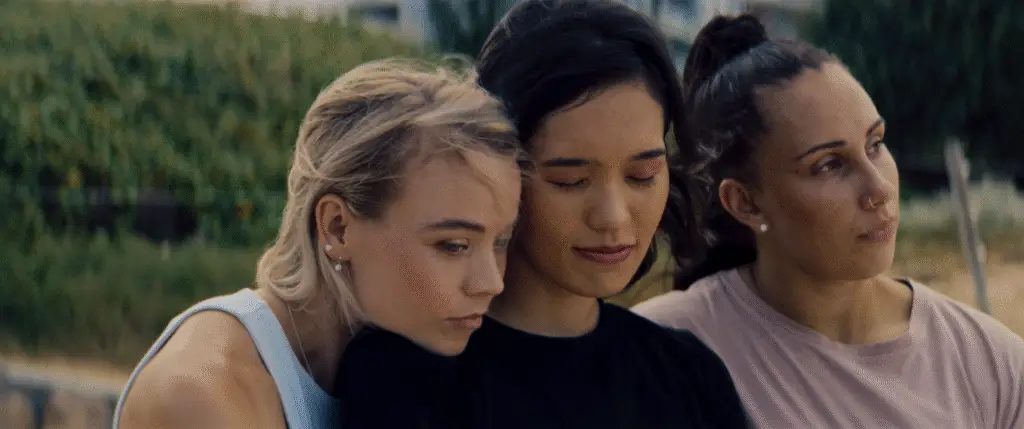Her dream became a reality nine years ago when she swam at the 2016 Rio Paralympics.
Speaking to Missing Perspectives, Mei explains she was no stranger to swimming growing up. It very quickly became a part of her “daily life”after she started going to the pool by the time she was a toddler.
“I started going to the pool when I was about a year-and-a-half old, so by the time I became aware of things, swimming was already a part of my daily life,” she says.
“When I was around seven, a staff member at the pool I was attending—who was also the head coach of the Japanese national para swimming team at the time—told me, ‘There’s something called the Paralympics, where people who are special like you can participate if you work hard enough.’ From that moment on, I began to dream of one day competing in the Paralympics myself.”
Through her incredible achievements in the water, Mei has become a role model for others. She believes that society has long held its own perceptions or judgements on people in the disability community – and she’s always wanted to embrace her own identity, irrespective of external labels.
“Ever since I was little, I always felt a sense of discomfort with being labeled as a ‘person with a disability’. Even if certain things took me more time, I could still do anything with a bit of creativity. Especially in swimming—I could swim faster than most kids my age,” she shares.
“When my mother went to study Disability Studies at the University of Leeds in the UK and earned her master’s degree she told me about the ‘social model of disability’ that she learned there, and it felt like someone had finally put into words the vague discomfort I’d carried for so long.
“For example, someone who was born and raised in Australia and speaks perfect English might suddenly feel ‘disabled’ in some way if they were dropped into Japan without knowing the language. Or a person who normally wears glasses would struggle in their daily life if glasses hadn’t been invented, or if they lived in a country where they weren’t accessible.
“In other words, a person’s abilities remain the same, but whether or not they feel disabled depends on the environment and the society around them. That’s why I find so much hope in the idea that if society is what creates disability, then society also has the power to remove it.”

As is the case for many professional athletes, external pressure is an added challenge when forging a successful career. However, intersectionality mustn’t be ignored. Being a woman of colour and having a disability means there are additional “barriers”, and Mei is “proud” of how she’s navigated these hurdles and proved she’s got what it takes to make it to the top.
“I’m definitely proud of winning medals at both domestic and international competitions, and of breaking and holding multiple Japanese records,” she says. “But what I’m especially proud of is overcoming the many ‘barriers’ I faced along the way—one by one—and helping to remove them so that future generations wouldn’t have to face the same obstacles.
“For example, even when I was once denied entry to a swimming club because of my disability, I didn’t give up on my dream. I became the first para swimmer to be admitted to university that I went to through a sports scholarship. I also started using a training prosthetic arm in practice at a time when no one else was doing it. And by appearing in the media, I was able to inspire other young people who saw me to step into the world of the Paralympics. Those are the things that come to mind first when I think about what I’m most proud of.”
While she retired in 2021, Mei still has an immense love for the sport. She’s swapped the swimming lane for the screen in some respect, as she stars in the new Netflix film, The Edge. As the Netflix synopsis indicates, this movie explores what happens when “three elite athletes forge a bond through the pressures of competitive sports as romance and controversy follow them on their quest for glory”. She features in the film alongside Jane Larkin and Lily Riley, and essentially the three characters are based on an Aussie sprinter, a First Nations powerlifter, and a Japanese Paralympic swimmer (which is Mei).
Mei says she embraced the process of tapping into her own lived experiences to portray her character Yui.
“Since Yui was a character based on me, I found it very easy to connect with her. Some of the painful experiences I’ve gone through in real life are also portrayed in the film, so going through the filming process felt almost like reliving parts of my life. It was a strange but meaningful experience—like I was re-tracing my journey and reaffirming the reasons behind the work I do today.
“Yui doesn’t say much, but I feel there’s a quiet strength in her presence. That calmness carries a kind of power, and I really resonated with that.”
Ultimately, Mei hopes – whether it is through awareness raised by screen productions like this or otherwise – that the sporting industry sees a monumental shift in terms of inclusivity.
“I hope to see a world where people are not judged by categories, but are simply seen and treated as athletes,” she says.
“To me, true inclusion means recognising each individual’s dedication and ability, regardless of their background or circumstances. That mindset should be reflected in every aspect of sport.”
The Edge is now streaming on Netflix.
Top photo – Pictured: Mei Ichinose, Source: Supplied

